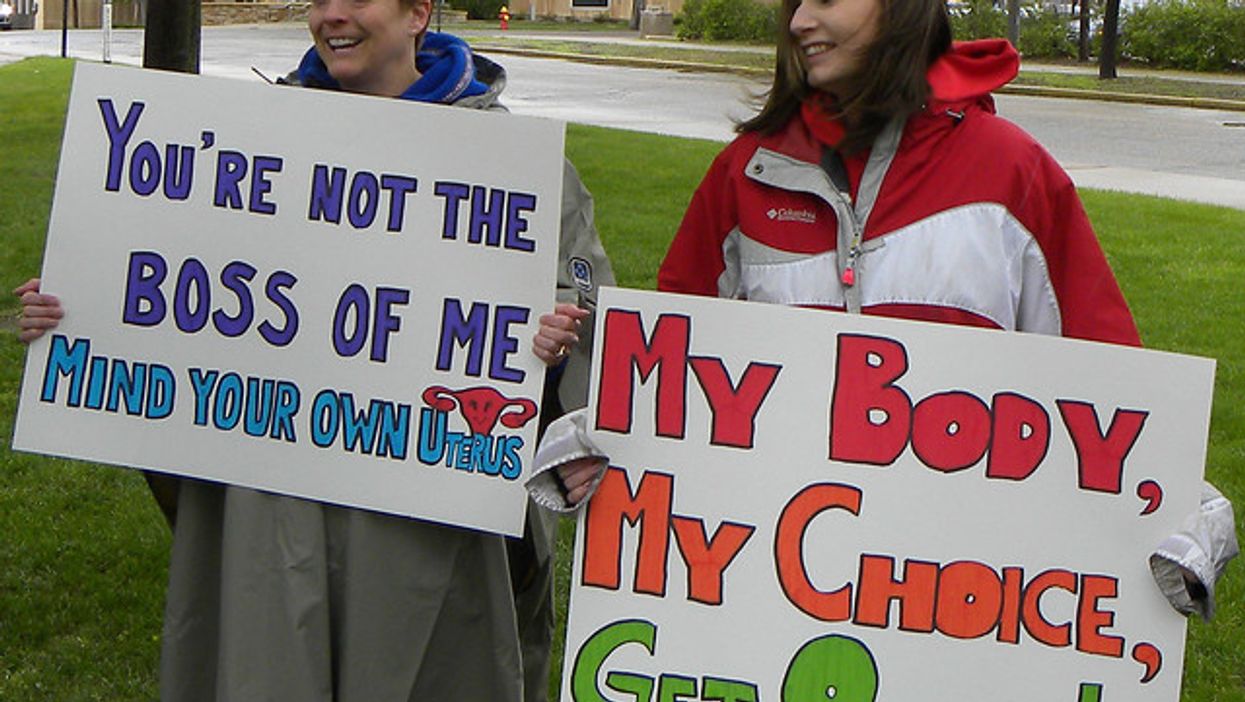Despite Pro-Choice Ruling, Supreme Court Still Threatens Abortion Rights

On Monday, abortion rights yet again narrowly survived another trip to the U.S. Supreme Court, with the majority holding that Louisiana's law requiring physicians to have admitting privileges at a nearby hospital was unconstitutional. Chief Justice John Roberts sided with the liberal wing of the court, but his concurrence makes clear he still supports making abortions very difficult to get.
Louisiana's admitting privilege law was nearly the exact same restriction Texas had enacted in 2013. That law was the subject of a case, Whole Women's Health v. Hellerstedt, that the court decided four years ago.
Both cases involve the same type of law, known by abortion rights advocates as a targeted regulation of abortion providers, or a TRAP law. The Center for American Progress, a nonpartisan policy institute, has written that such laws are "expressly crafted to impose unnecessary regulations on clinics and physicians providing abortion care in an effort to curtail or cease their ability to operate."
In Whole Women's Health, the Supreme Court held that a Texas law requiring physicians who perform abortions to have admitting privileges at a nearby hospital was unconstitutional.
Admitting privileges require abortion providers to make arrangements with a nearby hospital to admit patients there if needed. However, as Planned Parenthood notes, "abortion is so safe that doctors rarely admit patients to a hospital, which can make it hard or impossible for them to get privileges in the first place."
Additionally, if the local hospital is opposed to abortion because of its religious affiliation, for example, it may refuse to grant admitting privileges.
The majority in Monday's case, June Medical v. Russo, found that this law would impose an undue burden on someone seeking an abortion, but Roberts' concurrence in the Louisiana case is quite narrow. He agreed with the majority only because he believes the court must follow the decision in Whole Women's Health. He wrote that he "continue[s] to believe that the case was wrongly decided" but that the question before the court wasn't "whether Whole Woman's Health was right or wrong, but whether to adhere to it in deciding the present case."
He said that he would "adhere to the holding of [Planned Parenthood v.] Casey, requiring a substantial obstacle before striking down an abortion regulation." That case, from 1992, upheld a number of serious restrictions on abortion.
Roberts is still willing to allow any number of burdensome regulations against abortion, and he spends much of his concurrence justifying them.
He's fine with waiting periods, for example, saying that they don't impose a substantial obstacle, but that's simply not true. If there's a waiting period, people are required to make two trips to their abortion care provider. As the Guttmacher Institute, which researches abortion restrictions, points out, that requirement "could constitute a hardship" for some people.
If someone is obtaining an abortion out of state, a waiting period means they may have to arrange for child care, transportation, and overnight lodging. The need to raise additional funds can delay an abortion. One study found that a mandatory waiting period can increase the cost of an abortion by as much as $900. That same study examined Tennessee's mandatory waiting period and found a 62% increase in the share of abortions performed later in pregnancy. And later abortions are generally more expensive. In many states, anti-abortion legislators are working to ban those later abortions outright, thus making it impossible for those patients to obtain an abortion at all.
Roberts also takes no issue with parental consent requirements, saying that as long as there is a judicial bypass option, where a minor can go to a judge to have them sign off on the procedure, it isn't a substantial obstacle. The American Academy of Pediatrics disagrees, saying those laws "can delay and obstruct pregnant adolescents' access to timely professional advice and medical care." Teens already tend to seek care later than adults, so the additional delay of obtaining a judicial bypass can push abortion for teens later in pregnancy — which could mean they aren't able to obtain an abortion at all.
The chief justice isn't troubled by mandatory counseling either, expressing support for a requirement that only physicians provide the counseling "even if an objective assessment might suggest that those same tasks could be performed by others." Those counseling requirements, particularly when coupled with a mandatory waiting period, can create delays. A study of Mississippi's mandatory counseling and waiting period laws found the share of second-trimester abortions increased, as did the number of people who had to go out of state for an abortion.
In the end, though Roberts sided against this particular TRAP law, he got there by reminding people that he is still a big supporter of multiple restrictions, all of which can force people into later, costlier abortions. He doesn't see June Medical as the right case to impose an admitting privilege law, given how similar it was to Whole Women's Health. However, he makes clear that he fundamentally believes that restrictions that make abortion harder to get are perfectly acceptable.
Published with permission of The American Independent Foundation.
- How Abortion Bills Could Wreck The Republican Party - National ... ›
- Poll: Catholics Around The World Support Abortion Rights ... ›
- New York Governor Calls For Amending State Constitution To ... ›
- Will John Roberts Save Abortion Rights? - National Memo ›








